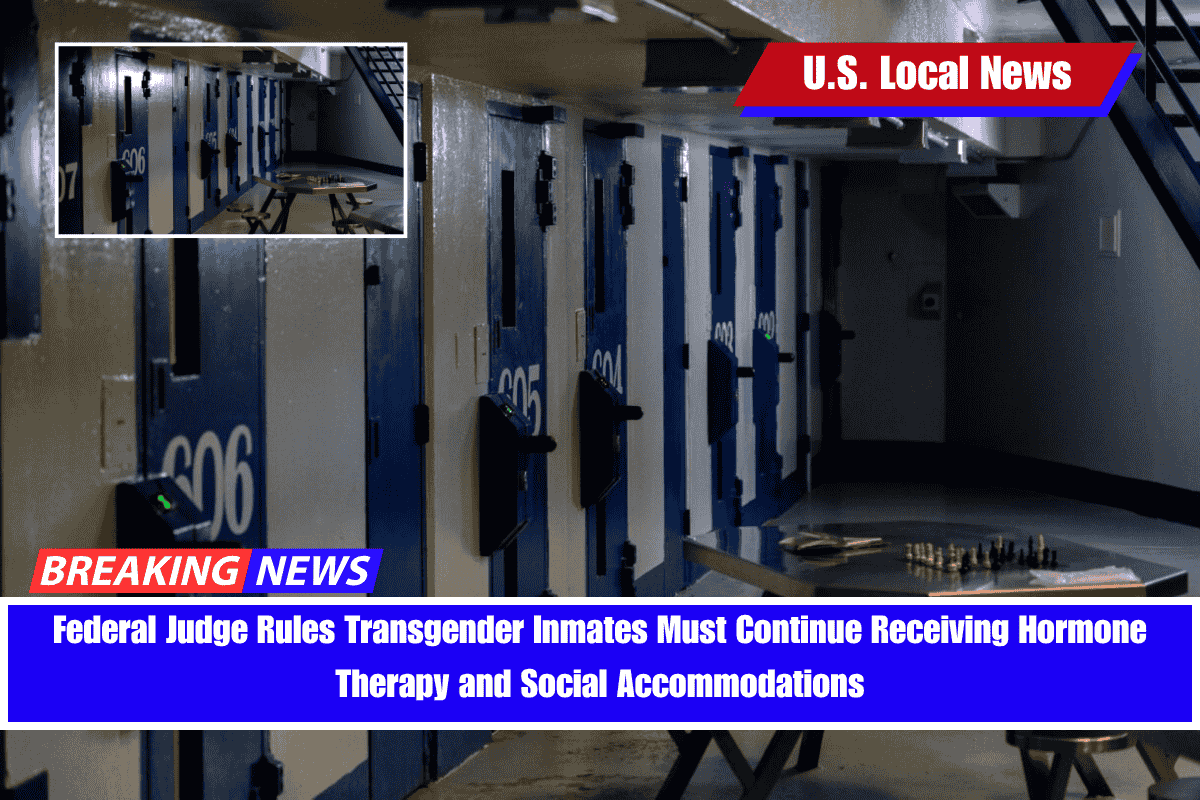A federal judge has ruled that the Bureau of Prisons (BOP) must continue providing hormone therapy and social accommodations to transgender inmates after an executive order signed by President Donald Trump disrupted their medical treatment. The ruling came on Tuesday, following a legal challenge from transgender inmates who sued to block the order.
Judge Lamberth’s Decision
U.S. District Judge Royce Lamberth stated that federal law prohibits prison officials from arbitrarily depriving inmates of medical treatments or accommodations that are deemed appropriate by the prison’s medical staff.
He emphasized that the transgender inmates who filed the lawsuit were seeking to alleviate the personal anguish caused by their gender dysphoria—the distress that arises when a person’s gender identity does not align with their assigned gender at birth.
In his ruling, Judge Lamberth noted:
“In light of the plaintiffs’ largely personal motives for undergoing gender-affirming care, neither the BOP nor the Executive Order provides any serious explanation as to why the treatment modalities covered by the Executive Order or implementing memoranda should be handled differently than any other mental health intervention.”
Impact on Transgender Inmates
The Bureau of Prisons currently provides hormone therapy to over 600 transgender inmates diagnosed with gender dysphoria. The BOP does not dispute that gender dysphoria can lead to severe psychological issues such as depression, anxiety, and suicidal thoughts.
Despite the federal government’s executive order requiring the BOP to revise its medical policies to prevent federal funds from being spent on “conforming an inmate’s appearance to that of the opposite sex,” Judge Lamberth ruled that the medical needs of transgender inmates must be met as part of standard healthcare.
Legal Challenge to Trump’s Executive Order
Trump’s 2018 executive order required the BOP to change its approach to medical care for transgender inmates, including prohibiting the use of federal funds for medical treatments that aim to alter an inmate’s appearance.
Additionally, the order directed the BOP to ensure that transgender women (assigned male at birth) are not housed in women’s prisons.
In February 2024, Judge Lamberth temporarily blocked the implementation of the order by preventing the transfer of three transgender women to men’s facilities and ensuring that their hormone therapy was not interrupted.
Certification of Class Action Lawsuit
Judge Lamberth’s ruling went beyond the original plaintiffs and extended to a broader class of individuals who are or will be incarcerated in federal prisons. The judge certified the case as a class action lawsuit, which means it applies to all transgender inmates in federal custody.
Response from Advocacy Groups
The plaintiffs in the lawsuit are represented by Transgender Law Center and the American Civil Liberties Union (ACLU), two organizations that have long fought for the rights of transgender individuals, especially in the context of healthcare and prison reform.
The ruling is a victory for transgender rights activists, who argue that denying transgender inmates access to medically necessary treatments such as hormone therapy violates their constitutional rights.
The Role of Judge Lamberth
Royce Lamberth, a senior judge who was nominated to the bench by President Ronald Reagan in 1987, has been known for his conservative stances but made this decision based on constitutional protections and legal precedents related to medical care in prisons.











Leave a Reply